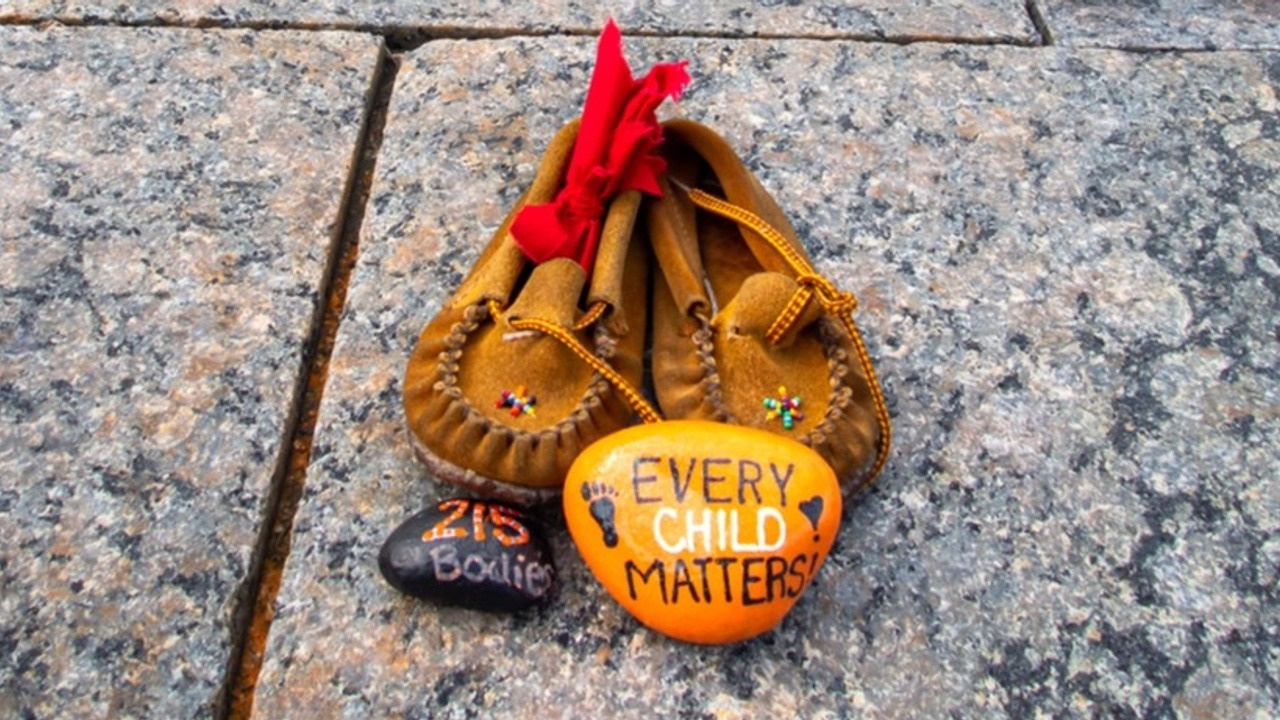National Day for Truth and Reconciliation: Part 2 of 3
Sep 19, 2022
This is Part 2 of a 3 part series on the National Day for Truth and Reconciliation. You can view Part 1 of the series HERE.
THE NATIONAL DAY FOR TRUTH AND RECONCILIATION:
Why is it essential?
In Canada, misinformation surrounding the impacts of colonialism and residential school institutions, as well as the consequential generational trauma that followed, unfortunately remains widespread. However, with the recent uncovering of numerous undocumented mass graves containing residential school victims, the evidence has become impossible to ignore. Thousands upon thousands of children are being found, and their stories are finally being heard by those outside of their communities.
The National Day for Truth and Reconciliation is necessary and long overdue, as it forces society to acknowledge the atrocities that took place in residential school institutions and to remember those who never made it home. The National Day for Truth and Reconciliation also allows survivors and their families to share their stories and experiences, to feel heard in their truth—and it allows those who are non-Indigenous to listen, learn, and reflect on what is being shared. Lastly, the National Day for Truth and Reconciliation is necessary for all people who inhabit this land to move forward together in solidarity.
In May of this year, the remains of 215 children were uncovered at a former residential school in Kamloops, British Columbia.[1] Since then, thousands of remains have been uncovered on or near the grounds of previous residential schools in Canada, including approximately 750 unmarked graves which were uncovered on the grounds of the former Marieval Indian Residential School in the province of Saskatchewan.[2] Residential schools were established by Christian churches and the Canadian government in an attempt to assimilate Indigenous children into colonial society. In fact, deputy superintendent of the Department of Indian Affairs, Duncan Campbell Scott (1862-1947), was often quoted saying he wanted, “to get rid of the Indian problem.”[3]
More than 130 residential schools operated within Canada, with the last one not closing until 1996.[4] Of those, only a small fraction have been searched fully for unmarked graves. As such, the total number of children who lost their lives in residential schools in Canada remains largely unknown, but any number of childhood deaths is devastating. You can view a list of the former residential schools in Canada, as well as those searched, unsearched, and in the process of being searched, HERE.
Establishing the National Day for Truth and Reconciliation allows survivors, families, and communities to share their stories and their truth. This day will hold space for acknowledging the horrors which took place, and the healing that will be ongoing for generations to come. The tragedies that took place within residential school institutions are not mine to tell, but there are many stories and experiences that have been shared for the public to hear and reflect upon. You can listen to first-hand accounts of three residential school survivors HERE.
The National Day for Truth and Reconciliation is also a day to listen. For those who have grown up unfamiliar with the atrocities which took place within the walls of residential school, now is the time to listen and learn. For many years, Canada has fallen short in educating Canadians on the true history of Canada and the damages caused by colonialism. However, with the power of the internet we now have the means to educate ourselves. Listen to interviews, read articles, watch documentaries, do whatever you need to do to learn the truth. This day is a day of reflecting and learning for those who need it, to open our eyes to the truth. It may be uncomfortable and difficult, but it is necessary in moving towards reconciliation.
Join us for our next blog article about how we can use the National Day for Truth and Reconciliation to reflect and take action towards reconciliation.
Author
Drew Murray - Program Coordinator, eLeadership Academy
I garnered a deeper understanding of reconciliation through a focus on Indigenous Studies in university, as well as lived experiences with my partner and son who are both Indigenous. With this connection, I hope to highlight the importance of reconciliation to non-indigenous people so we can work towards a better future. I would like to thank eLeadership Academy for using platform to focus our attention to importance of the National Day for Truth and Reconciliation.
Sources:
[1] https://www.bbc.com/news/world-us-canada-57291530
[2] https://www.cnn.com/2021/06/24/americas/canada-unmarked-graves-discovered/index.html
[3] https://www.thecanadianencyclopedia.ca/en/article/duncan-campbell-scott
[4] https://www.thecanadianencyclopedia.ca/en/article/residential-schools#:~:text=In%20total%2C%20over%20130%20residential%20schools%20operated%20in,did%20the%20first%20residential%20school%20in%20Canada%20open%3F


